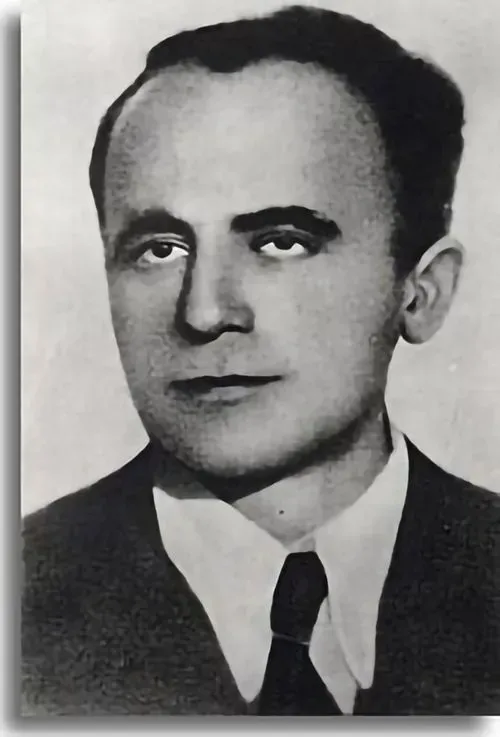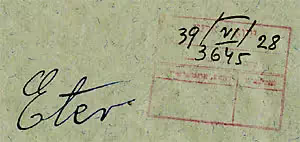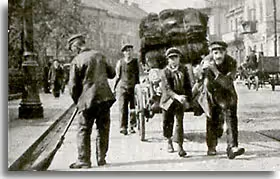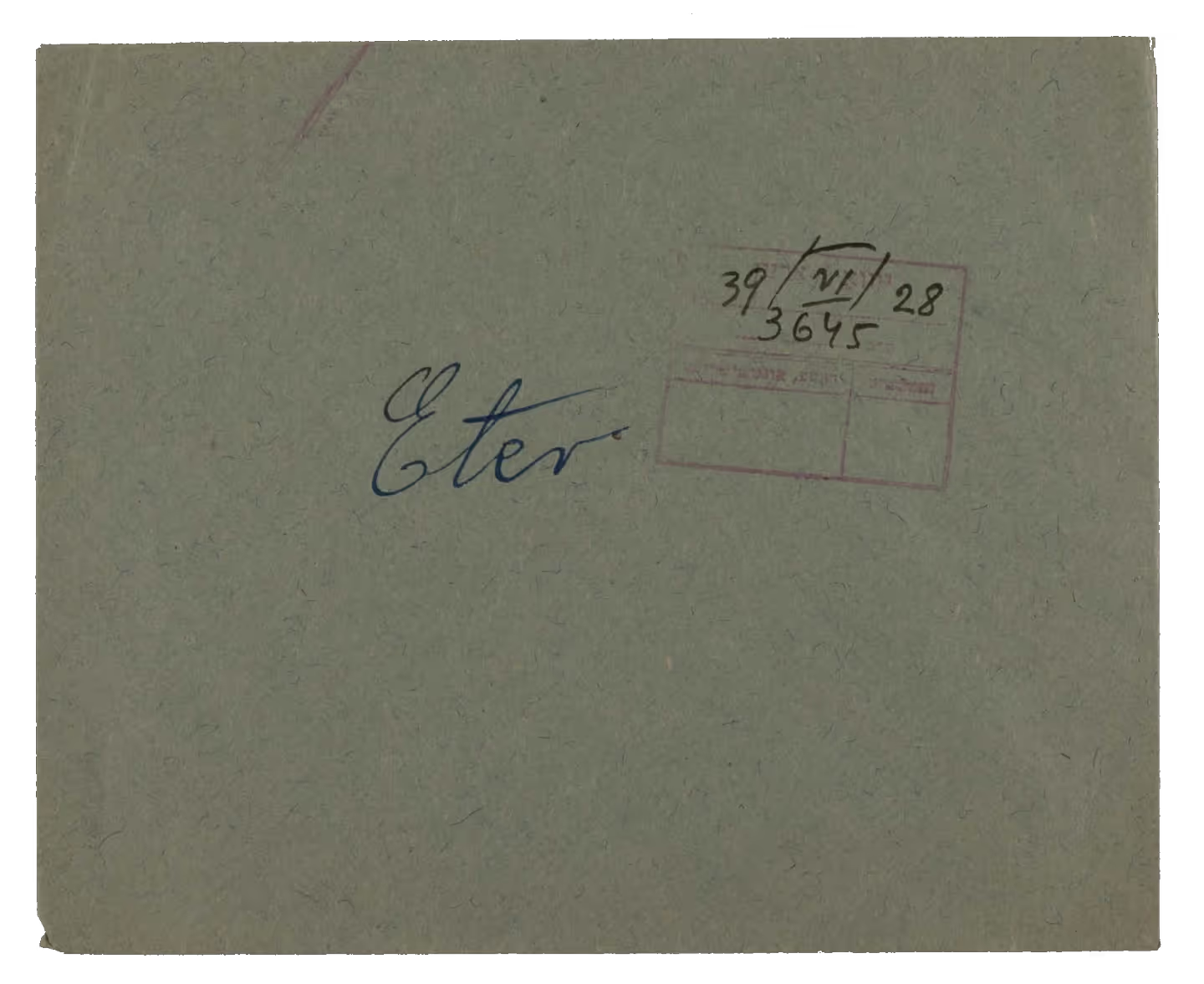
"Eter" wrote her autobiography in Polish in 1939, at the age of 18, as an entry in an essay contest sponsored by the YIVO Institute for Jewish Research. YIVO, then located in Vilna, Poland, invited young Polish Jews between the ages of 16 and 22 to write and send in their life stories.
Introduction
I Enter First Grade and Make Friends
Eter was the daughter of a rabbi in a small town in the vicinity of Stanislawow, Poland.
When I was five years old, Papa started to teach me the alef-beys. I made good progress, and within a year I started to study the Torah. At the same time I began to study Polish and arithmetic. Our friends said that I had "a good head on my shoulders."
[...]my sister and I went to the director of the local elementary school, and she told him that I wanted to be admitted to the second grade. The director said that it would cost fifteen zloty. He advised that I would do better in the first grade, because I was so young. The next day I started to attend first grade. At home I was taught to write out the year, 1928, on my school notebook covers, and from then on I was able to recognize dates.
As soon as I walked into the first-grade classroom I felt at home, because I saw so many familiar faces. Everything came easily to me, except that I didn't know how to speak Polish. But I quickly learned the language, and school was fun for me.
I became close with Nusia Zussman, the pharmacist's daughter. I would pick her up every day on the way to school, and after school she would walk me home. I learned to speak Polish from her, because although she is Jewish she didn't know Yiddish. I liked going over to her house because they always had lots of company. Her aunt, Dr. Kanarienstein's wife, would visit with her son Julek, who was younger than we were. Miss Reich, a teacher, would come with her pupil Ignasz, who was older than we were, and Dr. Topf's wife would also come over with her daughter Felicia, who went to school with us. The only problem was that I had to go home before tea-time, because I didn't want to eat non-kosher food.
Ceremony to Celebrate Completion of a Torah Scroll
When Eter was still a small child, a religious celebration made a big impression on her:
At this time our family celebrated an event that I've witnessed only once in my life. Grandfather had commissioned a scribe to write a Torah scroll, and it was completed just at this time.
our family celebrated AN EVENT that I've witnessed only once in my life
Many guests gathered for the dedication ceremony. In the evening there was a supper, and the celebration lasted until very late into the night. The procession that carried the Torah scroll from Grandfather's house to the synagogue was beautiful. Distinguished guests accompanied the Torah under a canopy. Alongside them, people carried candles and lit sparklers. The peasants kept their distance; none of them dared come close. For a long time afterward I dreamt every night about the dedication of the Torah.
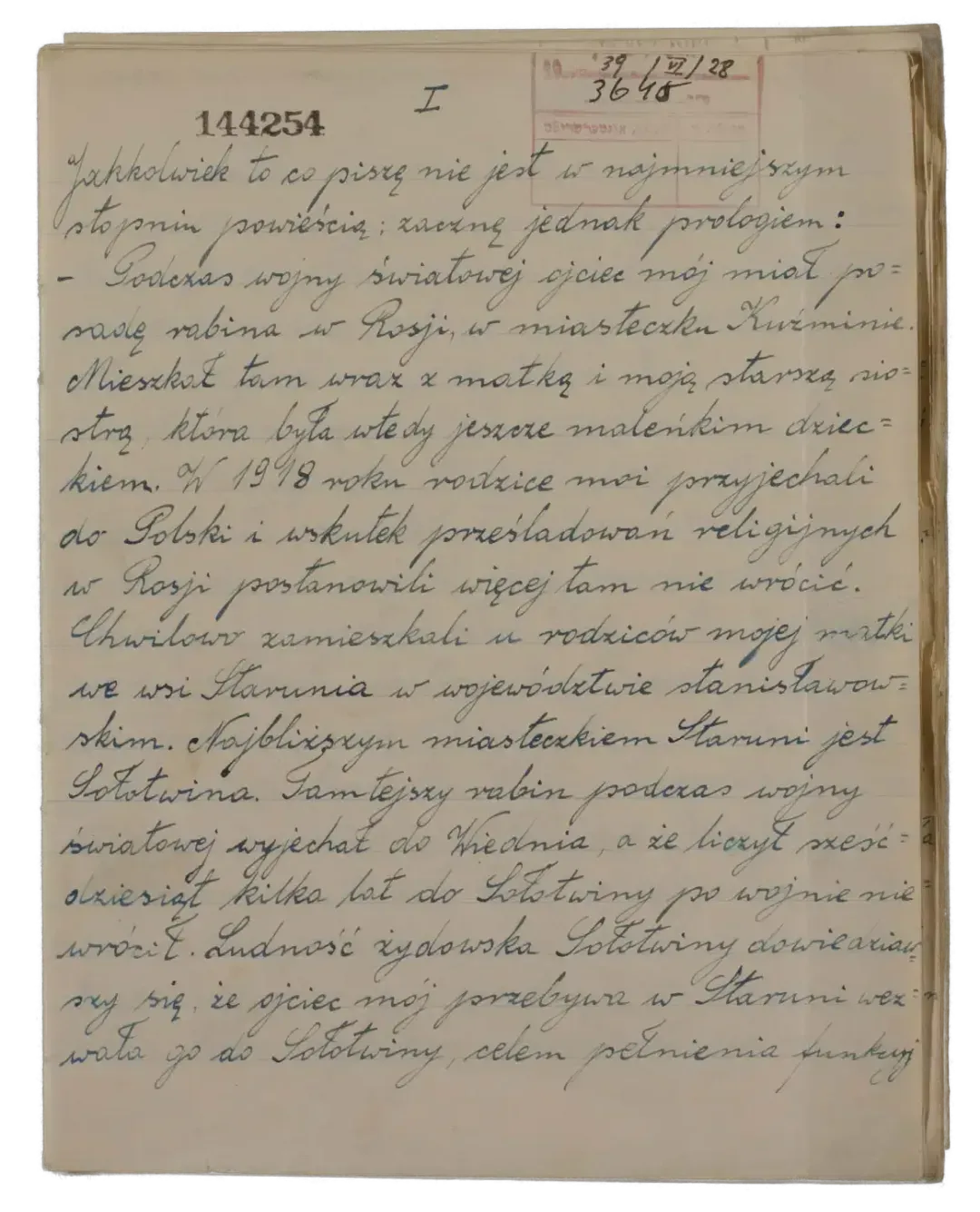
For a number of years, Eter's father informally served as the town's rabbi because the official rabbi was old and sick. When the old rabbi died, members of the Jewish community began fighting over who would succeed him.
The head of the Jewish community leadership placed an advertisement in the newspapers for a new rabbi. Papa published a notice in the papers that he had been living in K. and acting as rabbi for over ten years, and he asked that no one apply for the position here. He also sent all of his certifications to the Jewish community leaders and submitted his candidacy. It was rejected immediately.
Two distinct factions formed in our town: one was "the Rabbi's party," the other was "Haller's party." Elections were held at the end of winter. Meanwhile, various legal actions were initiated. Members of each party complained of the abuses and offenses they had suffered. Papa was also named in several lawsuits, and denunciations were lodged in as many administrative offices as possible.
Every evening people would come to our house to plan legal strategies. Our house became known as the headquarters. I devoted all my attention and energy to these cases, about which I became very knowledgeable. I knew when and how to call for appeals, repeals, and retractions, how to lodge complaints and to prepare applications and petitions. I had even memorized some of the statutes [...]
In the spring of 1936, Dr. Kanarienstein--one of the most important local political figures, whom we had looked to with great hope--became ill. He was taken to the hospital in Nadworna and died there on 30 April. The town went into mourning. At almost the same moment that Dr. Kanarienstein's body was brought back to town, the newly elected rabbi arrived from the other side of town. That day it seemed to me that I would go mad with anguish. I was drowning in tears.
The opposing party had triumphed. There was no hope left. Papa tried to make amends with the Jewish community leaders, but this didn't work. Then the last round was fired. About two weeks after Shavuoth, Papa went to his home town of Ottynia to learn the rules of kosher slaughtering from an elderly shoykhet whom he knew. The day that Papa went away, my younger sister took the only money left in the house to a school carnival. My older sister worked in a store, and her wages supported the household.
One night the new rabbi had his windows broken
Our situation attracted attention. Young people, who in general aren't much attached to religion or are even anti-religious, became very friendly and helpful. Even some Catholics took an interest in us. One night the new rabbi had his windows broken. When he tried to go for a walk in the evening, he was pelted with stones.
My Father Becomes a Shoykhet
When Eter's father lost his battle to become the town rabbi, he left town to obtain training as a shoykhet, a ritual slaughterer.
[...] Papa sent word that he would return to K. the day after Tisha B'Av . Almost the entire town waited for his bus to arrive. When Papa got off the bus people crowded around to greet him, and then they all escorted him home. Someone told me that two young women who were visiting K. at the time assumed that a great rebbe had come to town.
Soon people began bringing their poultry to Father to have them slaughtered. This gave them as much satisfaction as pious people once got when they brought sacrificial offerings to the ancient Temple [...]
My father's work as a shoykhet hurt the interests of the Jewish community leaders. They pressed the sheriff in Nadworna to harass my father. (The man who was sheriff at the time was later sentenced to several years in prison for fraud.) Once a policeman came and demanded to see Father's slaughtering knife. When it was shown to him, the policeman took it away. A second time, the policeman began searching for the knives himself.
It was almost Rosh Hashanah, a time when many animals are slaughtered, but this year the slaughtering had to be done in hidden locations. The sheriff issued fines to my father, and we appealed them in court.
Before Yom Kippur there was also much slaughtering to do. We assumed the Jewish community leaders would pressure the police to interfere, and apparently they agreed to do so. Papa would slaughter in secret locations, which he changed often, because they were repeatedly discovered. A full-fledged chase began, involving the entire police force. I stood on the street in front of our house and watched the movements of the police. Then one of them came up to me and ordered me to the police station, because I was "spying" on him. I went.
It was 7:30 in the morning. Meanwhile, Papa was being followed more and more. He fled to a nearby village, Monasterczany, and then walked to another village, Dzwiniacz, where he received wagonloads of poultry from town.
I was kept at the police station until noon. They probably expected that Papa would come to get me, and then they could detain him; I gathered this from some words I overheard from an adjoining room. When I was released, people came forward to meet me. For the first time, people were overjoyed to see me. Papa returned home at ten o'clock at night.
For about ten years we've had Gordonia, Hitahdut, and Freiheit in K. My girlfriends from school had become members of these organizations when they were about eleven or twelve years old. I didn't join any of them, because I knew my parents would be against it.
AS I LEARNED more about various Jewish ideologies, I began to lean toward th Revisionists
As I grew older and learned more about various Jewish ideologies, I began to lean toward the Revisionists. The Gordonists knew that I didn't agree with them, but that didn't prevent me from being the best of friends with my schoolmates who were in Gordonia [...]
I Hope to Be Able to Continue My Education
Eter finishes elementary school and is accepted into a commercial gymnasium (the equivalent of a vocational high school).
Now that it was actually about to happen, my parents told me that I could go to school only if I could be excused on Saturdays. I would give private lessons to deal with the problem of money, and I would also receive some food from home.
On the first day of classes I submitted a request to be excused from attending school on Saturdays. Three days later, during one of the recesses, a teacher informed me that the director would not grant my request, because "the regulations of the school required all students to attend on Saturdays." Despite this, I went to the director, but he told me the same thing in person. When I went to the office to collect my old report cards, the secretary tried to talk me into staying at the school, because once I left I would never be allowed to return. But I didn't hesitate even for a moment. By evening I was back home [...]
Despite this setback, Eter continues to hope that she will be able to attend secondary school. She studies for the entrance exams on her own.
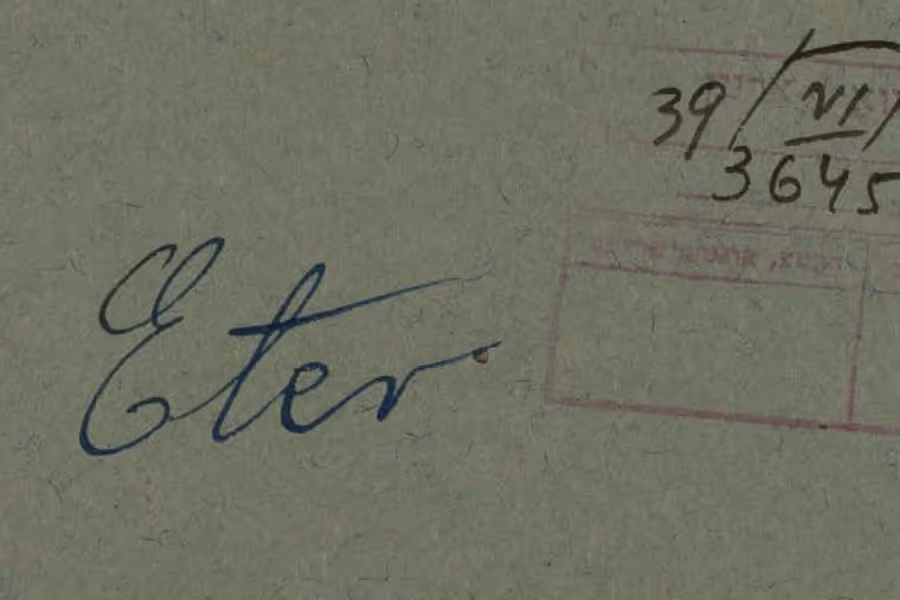
A few weeks ago, my sister opened a small clothing shop, and now she'll be able to help me. I promised myself that however much I manage to learn for the examination during this vacation, I will go and take it. And if I pass, I'll stay in Stanislawów and attend school. I'll stay even if I have to support myself by giving lessons. After all, it's high time, at the age of seventeen, for me to be in the third year of gymnasium . If I ever do graduate, I'll be able to make the bold proclamation that I made it to the North Pole at a snail's pace.
I've never had a vacation as horrible as the one this year, because it seems to me that uncertainty is the worst possible misery. All day long the same thought pounds inside my head: Will I pass? Many times a day I recite to myself Julian Tuwim's poem, "If only..." I call it "Hope." It goes like this:
And if nothing? And if no?
I was poisoned by delusion
O you brightness, O you wonder,
And poisoned now dream on:
And if not?
Then...too bad.
But if something? But if yes?
Dawn on doves' wings
Sets the world ablaze
Poppy-red,
For if yes,
Then...my God?
#7: What Became of Eter?
It is not known if Eter survived World War II and the Holocaust. Her overseas relatives never heard from her again after 1939.
